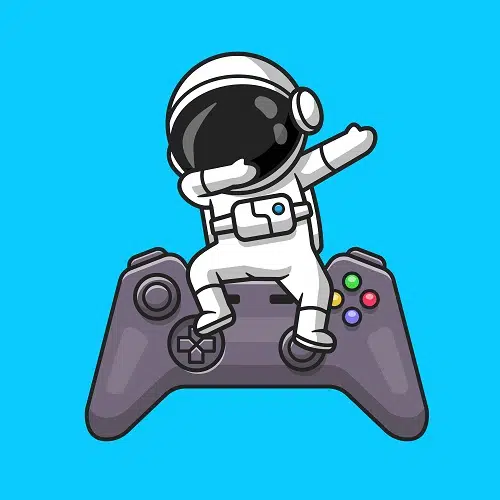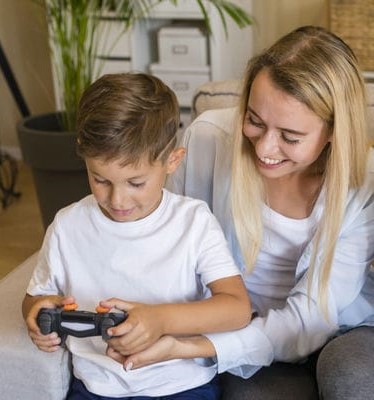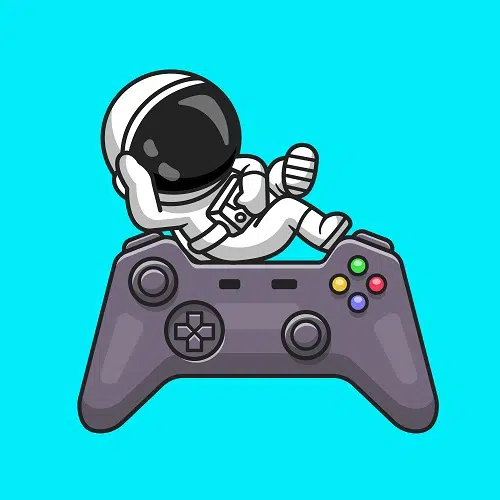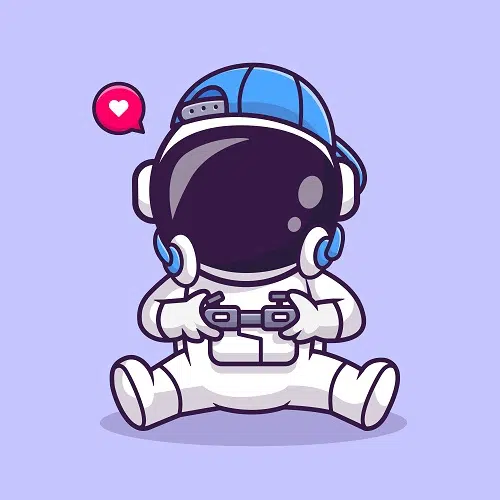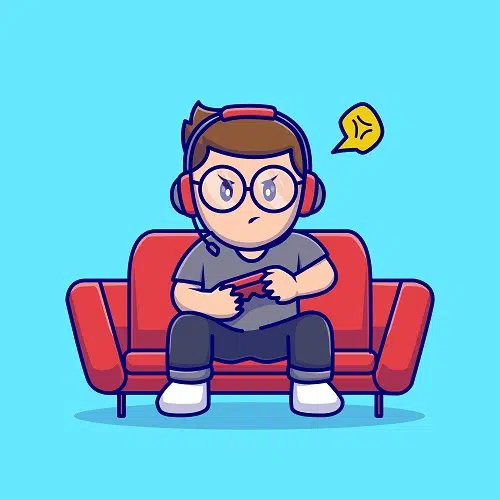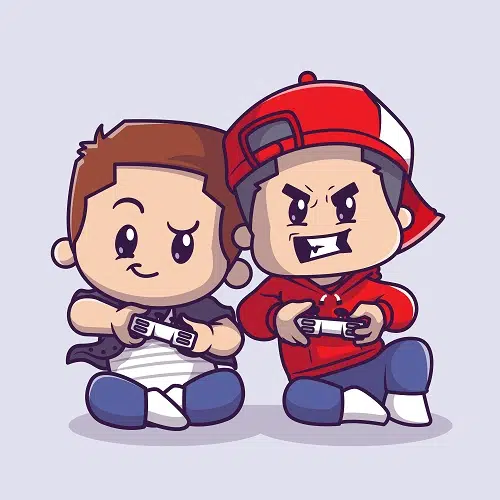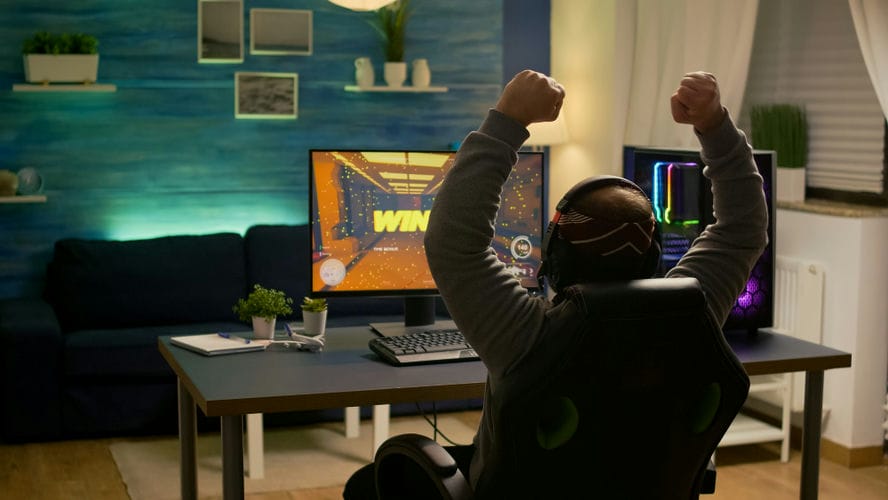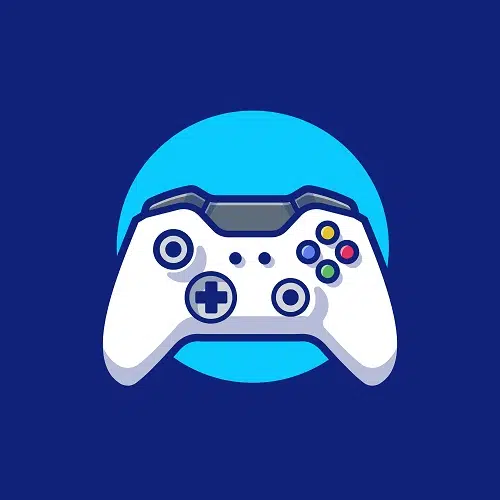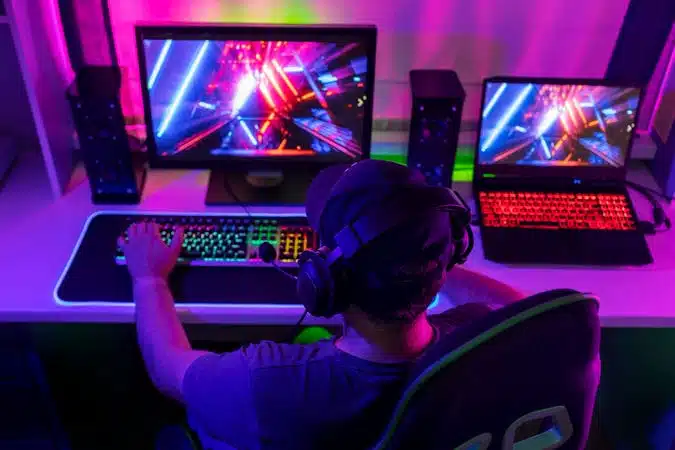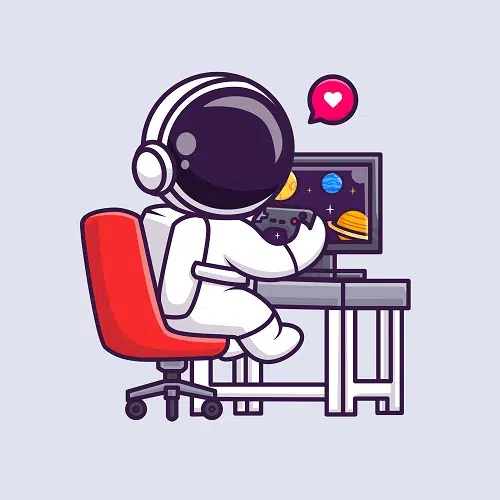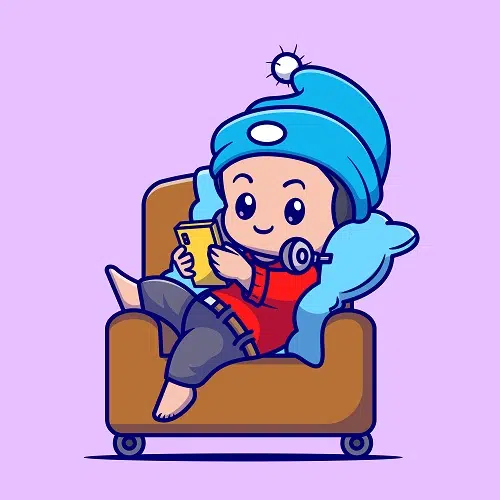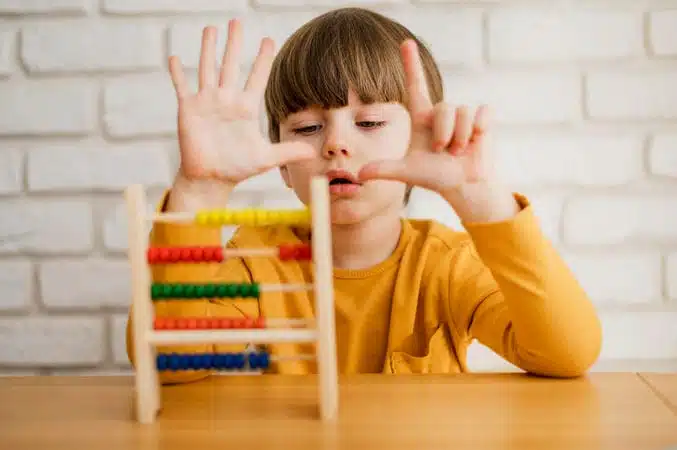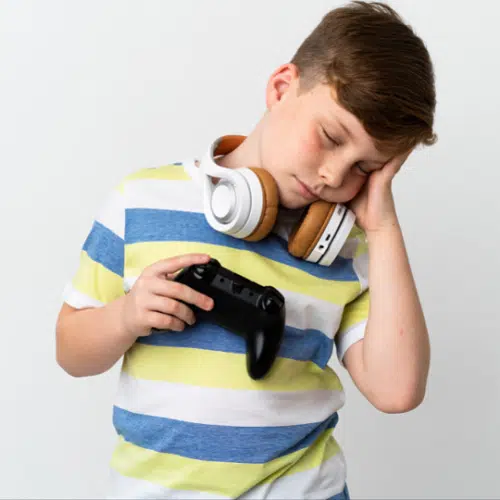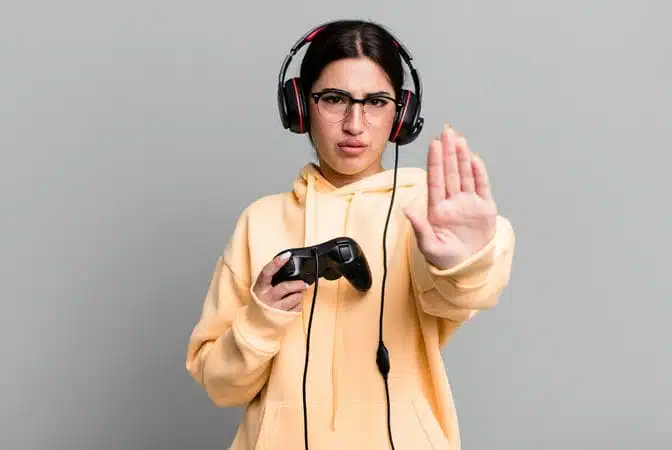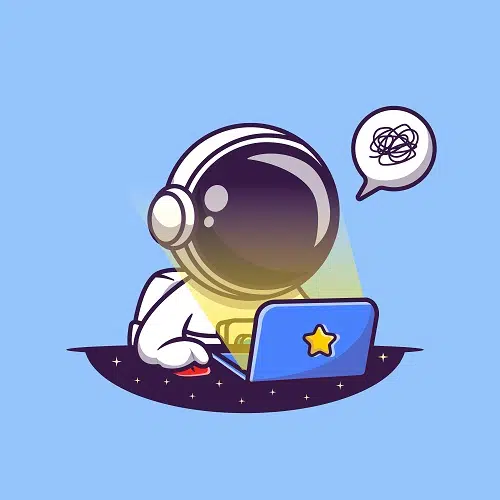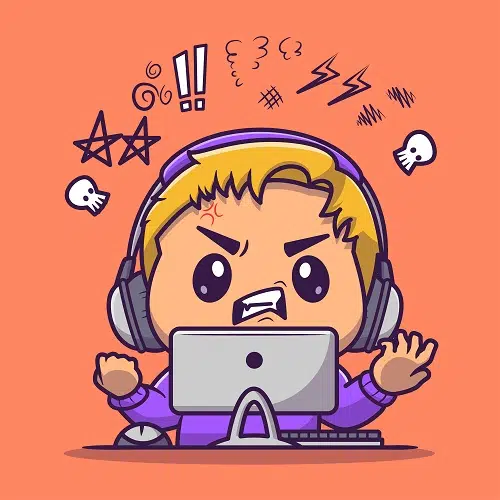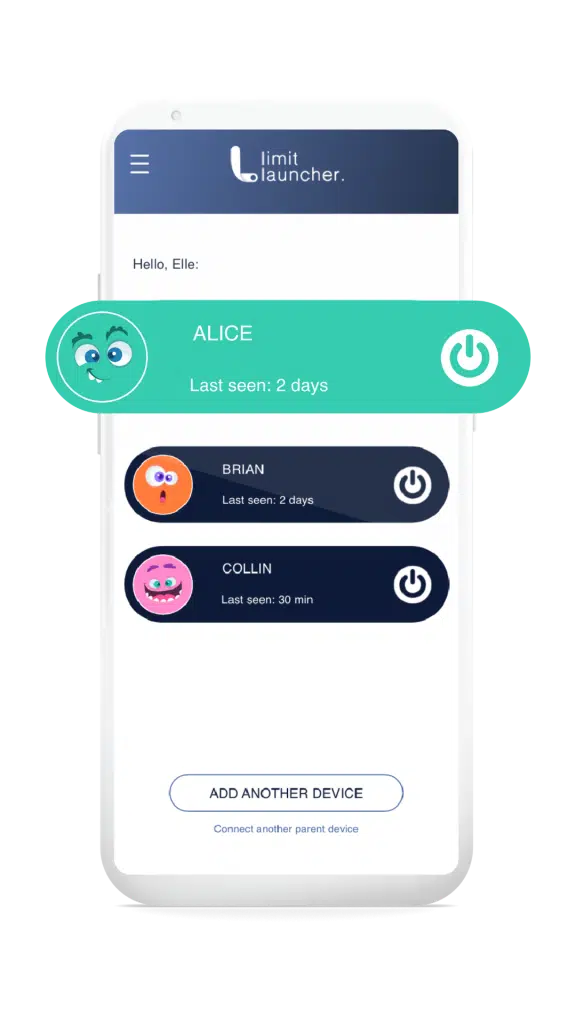In today’s world, video games are more widely available than ever. As a result, video game addiction – the uncontrolled use of video games – has become an increasing concern. Based on current statistics, anywhere from 1-16% of gamers suffer from video game addiction.
Though the American Psychiatric Association has yet to recognize video game addiction as a disease, the World Health Organization (WHO) recognizes it as a disease. Discover nine warning signs of video game addiction and what to do if you notice them.

Spending too Much Time Playing Video Games
Many people believe that video game addiction is simply excessive playing of video games. This is not necessarily the case, though excessive video game use is a sign of developing or active video game addiction. That raises the obvious question: how much gaming is too much?
The answer to that question varies depending on the age and lifestyle of a gamer. Researchers are still studying the effects of video games, so recommendations for how much usage is healthy vary. Some good guidelines to follow are:
- For children and adolescents, it is recommended that no more than two hours per day are spent behind screens.
- It is advised that adults do not play video games for more than 20 hours per week.
- In cases of video game addiction, an average of eight hours or more per day are spent gaming.
Remember that the “two hours of video game use or less per day” recommendation for children is not a hard and fast rule. Sometimes, a person will hold off on gaming throughout the week, then play for several hours on the weekend. As long as gaming does not interfere with other obligations, it is likely not a cause for concern.

The Challenging Part
The purpose of video games is to keep you playing, and when you reach a goal in a game, it releases a chemical that makes you feel good. While this is not a bad thing, it is one of the main reasons some people start to spend more and more time on video games, even when it interferes with other life responsibilities.
For parents, developing and maintaining a healthy balance between video game use and other activities can help prevent gaming from getting out of control and causing further problems. Encourage activities that involve social interaction, such as sports or other extracurricular activities.
Increasingly Using Video Games to Escape
Video games are a great way to relax or unwind after a long day. They provide plenty of entertainment, and they can even provide some significant mental health benefits. Research has shown that, in moderation, video games can be an effective way to reduce anxiety, stress, and even depression.
In some cases, video games become the sole means of escaping negative feelings or emotions, which can lead to dependency and even addiction. This is an example of when the positive effects of video games can quickly turn negative, especially when they take up excessive amounts of a person’s time.
Why is using video games to escape or avoid life’s problems an unhealthy practice, and how can it lead to video game addiction? There are a few reasons:
- If video games are increasingly used as a way to deal with negative emotions, problems, or stresses in life, the ability to utilize other, healthier coping methods can be reduced or even lost.
- Video games are known to be effective at suppressing negative emotions, which can make it more difficult to recognize and effectively or healthily manage those emotions over time.
- The more dependent someone becomes on video games to escape from negative emotions, the more time they are likely to spend gaming, which can lead to further problems or addiction.
When video games become the go-to source for escaping from or dealing with life’s problems, they have gone from healthy activity to a potentially unhealthy addiction. Cutting back on gaming or stopping altogether can help reduce dependency on video games and allow someone to use healthier means of coping with life’s struggles.
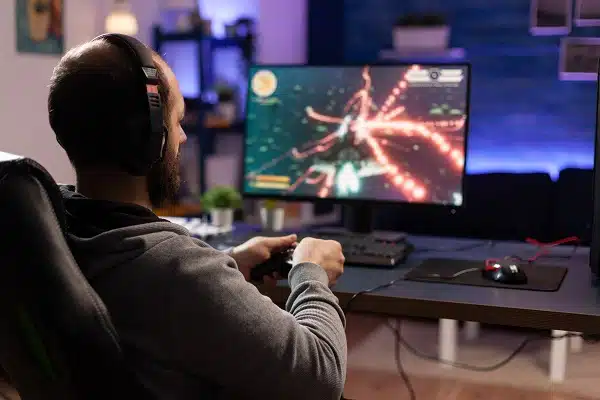
Does Anything Help?
Simply removing video games in these situations will not necessarily solve the problem. In some cases, an underlying condition such as anxiety or depression is part of the reason a person feels the need to use games to escape from negative feelings. Taking away that source of comfort with no alternative might even make the situation worse.
Make sure the time that was previously allotted for gaming is spent on other engaging activities, which will help reduce feelings of anger, anxiety, or stress that can occur when someone is no longer able to find relief from those feelings by gaming. If feelings of depression or anxiety remain, therapy or medication could be beneficial.
Being Deceitful or Lying About Video Game Use
For some gamers, the urge to keep playing is apparent, but they find that they cannot ignore it. Many gamers, even adults, find it difficult to admit that they are unable to stop gaming, and often they will try to ignore or deny that gaming has become a problem. This usually leads to being deceitful to friends, family, or others about video game use.
Some signs to watch out for include:
- Lying about video game use
- Feeling the need to cover up how much time they are spending playing video games
- Feeling guilty, bad, or depressed about how much time is spent playing video games
The transition from gaming as a normal, healthy hobby to an unhealthy addiction occurs over time. It can be easy to overlook or brush off, especially if you do not know the warning signs. When one reaches the point of lying about video game use, though, it means that their control over their video game use is slipping.
The best option in this situation is to put strict limits or restrict video games entirely for a period. Knowing that video games are not an option can restore a sense of control in one’s life, reducing the urge to game whenever possible and leaving room to focus on other hobbies, relationships, and responsibilities.
Becoming too Preoccupied with Video Games
When one starts to become too preoccupied with video games, it can become a problem – and an early sign of video game addiction. This is slightly different from spending too much time gaming specifically, and there are certain symptoms of becoming too preoccupied with video games to look for. These include:
- Too much time is spent thinking about video games
- Often reminiscing on previous use of video games
- Anticipating future use of video games
- Difficulty concentrating on other activities, tasks, or responsibilities
Many video games consist of various levels and/or obstacles to beat with the goal of keeping the player engaged for long periods of time. However, becoming too preoccupied with video games can distract from necessary life tasks, resulting in problems with school or work performance and relationships.
If left to progress, the preoccupation with video games can lead to video game addiction. Limiting video game use and committing to other activities or tasks can help prevent further symptoms of video game addiction and the negative health effects that are caused by video game addiction.

Being Unable to Stop Playing Video Games When Needed
A telltale sign that video games have gone from a source of entertainment or stress relief to a problem and even potential addiction is the inability to stop playing them, especially when you actually need to. Examples of this include:
- Sacrificing sleep to keep gaming
- Gaming instead of taking care of school or work responsibilities
- Ignoring personal relationships to spend more time gaming
- Anger, anxiety, or irritability when forced to stop playing
If you notice that you or someone you care about cannot stop playing video games, a good action is to make a clean break from gaming. Putting strict limits on game use can also be helpful. However, it’s also important to understand the nature of gaming to know what is and is not a sign of a larger problem.
For example, if you do not play video games often, or ever, it might seem like a bad sign if a person has an angry outburst when, say, their game is unexpectedly shut off or interrupted. Some might consider this to be a symptom of an anger problem or aggression caused by the game, but that is usually not the case.
Many video games often require high levels of focus and concentration on the part of the player. “Getting into” video games while playing them is natural, and being upset about abruptly losing the progress made during a gaming session is not typically a cause for concern.
Inability to Cut Back on Video Games
Not being able to cut back on video games, especially when needed – such as for school, work, relationships, responsibilities, or other obligations – can be a sign of video game addiction. Losing sleep, poor eating habits, and changes in behavior due to excessive video game use are also red flags.
In some cases, a person who cannot cut back on video games may begin to show symptoms of video game withdrawal, which is another sign of video game addiction. Video game withdrawal symptoms include:
- Irritability, anxiety, and restlessness when unable to play
- Feelings of depression, emptiness, sadness, or loneliness
- Lack of motivation or interest in other activities
- Being unable to face or deal with other obligations
- Trouble with social situations
If these symptoms occur, it is best to keep a distance from video games until they subside. The more time spent away from video games, the fewer negative effects of video game addiction you will see. Having someone to help monitor one’s video game usage is a good way to prevent from getting out of hand.
Prioritizing Gaming Over Everything Else
Another sign of video game addiction is prioritizing gaming over everything else – putting gaming before other interests, responsibilities, relationships, or basic needs, for example. Other signs that someone is prioritizing gaming above everything include:
- Losing interest in other activities and relationships
- Choosing gaming over school, work, or other responsibilities
- Changes in sleeping and eating patterns to accommodate gaming
- Problems with personal or professional relationships
- Finding excuses to avoid other people and responsibilities to keep gaming
When gaming starts to take priority over other things in life, it has officially become problematic. If this happens, the best way to prevent it from becoming a bigger problem or developing into a video game addiction is to limit or restrict video game use for a while.
If you notice any of these signs, a good way to determine if someone truly is prioritizing gaming over everything is by having a straightforward conversation about it. The person might not be aware of or ready to accept the effects their game use is having or struggle to control their video game use.
If, after concerns about a person’s choice to play video games instead of taking care of personal, school, work, or relationship responsibilities are expressed, and if game use continues, further action should be taken.
Problems with Daily Life and Functioning
One of the biggest warning signs of active or developing video game addiction is problems with daily life and functioning. When video game use begins to get out of control, other areas of life can begin to suffer because of it. This can mean a few different things, including:
- Poor performance at work and school
- Trouble with personal and romantic relationships
- Not sleeping or eating
- Poor hygiene
- Behavioral and mood changes
If video games start to cause issues in daily life, they have officially become a problem. This is an important sign of video game addiction to watch out for, and if any of the above symptoms are noticed, it is time to intervene. Either stop video game use completely for a while or place limits on daily game use.
Often, when one is able to escape the grip that video games can have on them, they are more clearly able to see the problems that their game use has caused. Taking away the temptation by removing video games from the equation is the most effective method, but in some cases, just setting and sticking to limits on use is all that is needed.
Continued Video Game Use Despite Problems
Often, gamers are not even aware of the problems their video game use is causing. However, once the problem becomes known and video game use continues in the same manner as that which caused the problems to begin with, it is a clear sign of video game addiction.
Identifying when video game use has become a problem can sometimes be difficult. If you are unsure, ask yourself:
- Is gaming interfering with school or work performance?
- Are video games holding you back from moving forward in life?
- Is gaming causing problems in relationships?
- Are video games causing changes or a decline in mental or physical health?
- Is gaming causing you to lose sleep or not take care of yourself?
If the answer to one or more of these questions is yes, video games have officially become a problem. Taking action – either limiting video game use or stopping entirely – will help keep the situation from getting worse, causing further problems, or developing into an addiction.
Understanding Video Game Addiction
Not everyone enjoys video games, and not all gamers are the same. For those who play video games infrequently, casually, or not at all, the idea of video game addiction can be difficult to understand or sympathize with. If someone is spending too much time on video games, can they not just turn the game off?
Unfortunately, it is not that simple. Video game addiction is an impulse control disorder, and studies have shown that it can be almost as dangerous as other addictions. When playing video games, a chemical in the brain called dopamine is released. It is this chemical that triggers addiction – to video games as well as drugs or alcohol.
Understanding this can help you notice and understand signs of video game addiction easier. It is also important to take it seriously, making sure you or a loved one does not suffer the many consequences associated with video game addiction.
Health Effects of Video Game Addiction
Aside from spending an excessive amount of time playing video games, video game addiction can negatively affect physical and mental health. Some of these include:
- Headaches or migraines
- Neck and back pain
- Weight gain or poor eating habits
- Poor personal hygiene
- Depression, anxiety, and self-isolation
If gaming continues despite problems, it is best to go to the root of the issue and stop video game use completely for a while. This makes it easier to recognize how and why video games have caused problems and allows time to resolve them. As a result, future problems may not occur when using video games again.
The research on video game use and its effects is ongoing. While video game addiction is becoming increasingly recognized, resources for treating it are becoming increasingly widely available. An excellent tool for preventing gaming from causing problems is software to monitor, limit, and control video game use.




